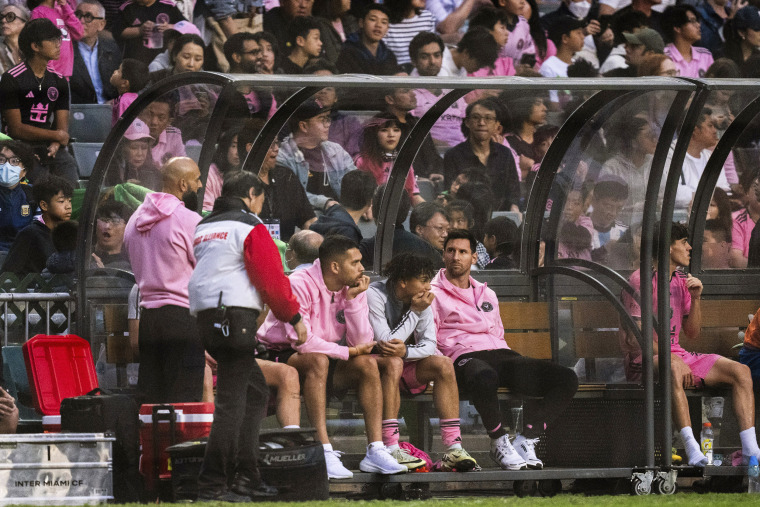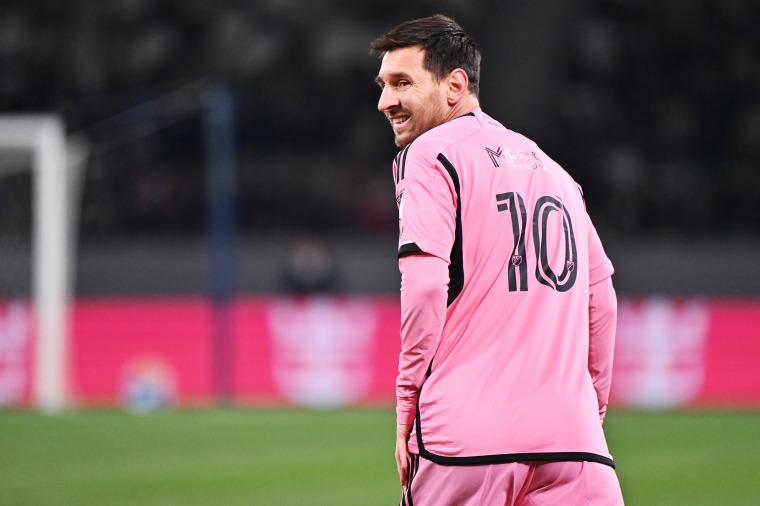HONG KONG — Soccer star Lionel Messi said that his failure to play in an exhibition game in Hong Kong had nothing to do with “political reasons” and that he has a “special relationship” with China, where officials responded angrily to his absence.
The Argentinian player was in the Chinese territory this month for a friendly match between a team of Hong Kong players and his Inter Miami, a Major League Soccer club, part of a global tour ahead of the start of its regular season Wednesday.
Fans from Hong Kong and mainland China who paid hundreds of dollars per ticket were furious when Messi, 36, did not take the field during the sold-out game Feb. 4, citing injury. The Hong Kong government, which had been planning to sponsor the game, demanded an explanation.
Their anger was further fueled three days later when Messi played 30 minutes in an exhibition game in Chinese rival Japan. In an editorial, the Chinese state-backed nationalist tabloid Global Times suggested that Messi and Inter Miami had “political motives” and that “external forces” were trying to embarrass Hong Kong, which sees such events as helping to restore a reputation battered by years of strict Covid restrictions and a crackdown on dissent.
In a video posted late Monday on Weibo, the Chinese equivalent of X, Messi reiterated that he had been unable to play because of an inflamed abductor muscle.
The day before the Hong Kong game, “I tried to train and made an effort for all those who had come to watch training,” he said, echoing earlier comments at a news conference in Japan and a written statement on Weibo. “I did all I could.”
“But I really couldn’t play. I felt discomfort and there was a risk it would get worse,” he said, adding that he felt better by the day of the Japan game.
He said it was “totally untrue” that he had not played in Hong Kong for political reasons.
“Had that been the case, I wouldn’t have even traveled to Japan or visited China as many times as I have,” he said in the 140-second video, speaking Spanish over Chinese and English subtitles.
“Since the start of my career, I’ve had a very close and special relationship with China,” Messi continued, citing interviews, events and games he had played in the country.

Messi also sent “good wishes to everyone in China,” for whom he said he has always had “special affection.”
While some social media commenters noted that Messi had not actually apologized, others criticized efforts to politicize sports.
“I believe in this player I have always loved, who never sees his fans with any bias,” one user wrote.
The fallout from Messi’s no-show has been extensive, with the Chinese city of Hangzhou canceling a friendly game next month between World Cup champion Argentina, which Messi captains, and the national team of Nigeria. Tatler Asia, which organized the Hong Kong event, withdrew a request for government funding and offered ticketholders a 50% refund.
Hu Xijin, a former Global Times editor-in-chief who had been highly critical of Messi, said in a Weibo post Monday that he accepted the player’s explanation, citing his “quite sincere” attitude.
“Certainly, it’s difficult to restore Messi’s image to what it was in Hong Kong and mainland China, and this is the price he needs to bear,” Hu said in a post on Weibo. “I personally believe that we can move on from this.”
